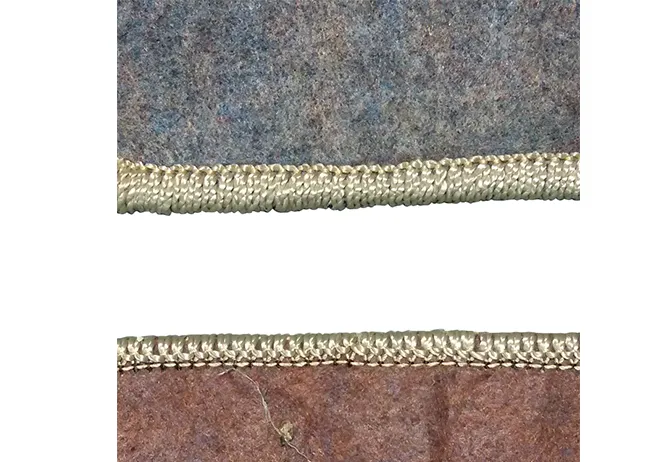Affordable Prices for Leather Sewing Machines in 2023
Understanding the Price of Leather Sewing Machines
Leather sewing machines have become essential tools for hobbyists and professionals alike. Whether you're crafting handbags, wallets, or custom leather goods, the right sewing machine can make all the difference in the quality and efficiency of your work. However, with a plethora of options available on the market, understanding the price of leather sewing machines and what drives their cost can be quite overwhelming.
Factors Influencing Price
1. Machine Type and Functionality Leather sewing machines vary significantly in terms of type and functionality. Basic models suitable for light leatherwork can be priced lower, typically ranging from $100 to $300. However, if you're in the market for a heavy-duty machine designed to stitch thick leather, prices can significantly increase, often ranging from $400 to over $2,000. Specialized machines that offer features such as programmable stitching patterns, automatic tension adjustments, and walking feet can drive the cost even higher.
2. Brand Reputation Well-established brands known for their reliability and durability often command higher prices. Companies like Juki, Consew, and Tandy Leather have built a reputation for producing high-quality machines that can withstand the rigors of leatherwork. Investing in a reputable brand might require a larger upfront cost, but it can save you money in the long run by reducing repair costs and increasing longevity.
3. Material and Build Quality The materials used in the construction of the sewing machine will also impact its price. Models made with high-quality metals and robust plastics typically cost more. These materials contribute to the machine's durability and performance. Machines designed for industrial use are generally built to handle tougher materials and workloads, leading to a higher price tag.
leather sewing machine price

4. Features and Accessories The inclusion of additional features such as built-in walking feet, bobbin winders, and needle positioning can affect the overall price. Some machines come with various presser feet for different applications, while others might have advanced features like automatic thread-cutting and computerized operation. While these features can enhance functionality, they also add to the cost.
5. Warranty and Service A machine with a more extensive warranty or service agreement may have a higher initial cost but offers peace of mind. Investing in good after-sales support can help mitigate long-term maintenance costs, making it a worthwhile consideration when evaluating your options.
Average Price Range
On average, consumers can expect to pay anywhere from $150 to $700 for a decent leather sewing machine. However, for professional-grade machines capable of handling heavier materials and extensive workloads, prices can soar to $1,000 or more. It's essential to have a clear understanding of your needs and intended use to choose a machine that fits both your budget and requirements.
Conclusion
Investing in a leather sewing machine is a significant decision that impacts your crafting experience. Understanding the pricing landscape helps in making an informed choice tailored to your needs. Focus on selecting a machine that not only fits your budget but also offers the features and reliability necessary for your specific leather projects. With the right machine, you can enhance your creativity and take your leatherworking skills to the next level. Keep in mind that quality often trumps price; a more expensive, durable machine could be a better investment than a cheaper, less reliable alternative. Happy sewing!
-
Industrial Cylinder Arm Sewing Machine: Revolutionizing Heavy-Duty SewingNewsJul.28,2025
-
Cylinder Arm Sewing Machine: Perfect for Special Sewing ApplicationsNewsJul.28,2025
-
Cylinder Bed Sewing Machine: Essential for Sewing Complex MaterialsNewsJul.28,2025
-
Heavy Duty Sewing Machine: The Essential Tool for Industrial ApplicationsNewsJul.28,2025
-
Computerized Pattern Sewing Machine: Revolutionizing Precision StitchingNewsJul.28,2025
-
Heavy Duty Industrial Sewing Machine: Power Meets PrecisionNewsJul.28,2025
-
Leather Sewing Machine: The Industrial Standard for Tough MaterialsNewsJul.18,2025





























